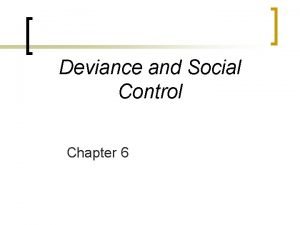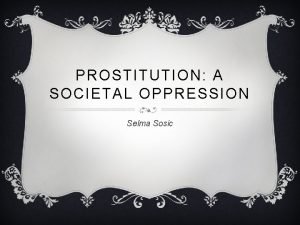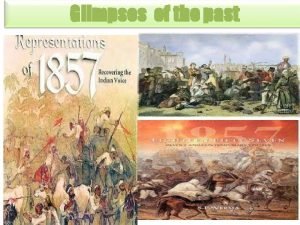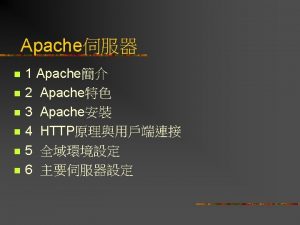ADMIRATION OF LOZEN APACHE WOMAN WARRIOR Oppression The







- Slides: 7

ADMIRATION OF LOZEN APACHE WOMAN WARRIOR

Oppression The Apache people were considered expatriates in their own land. They had to fight to protect their land resources. This came with a price: many deaths, wars and even imprisonment. What happened can be equated to a modern day genocide. The Apache people under the leadership of Lozen and Geronimo, sort to end this oppression.

Against All Odds Lozen was not castigated for her apparent masculine skills According to anthropologist Morris Opler girls were urged to have strength and remain strong. The attitude of the people was more of admiration rather than ridicule/condemnation. Most of the girls who excelled well at masculine pursuit were married off, however, Lozen chose to remain as a warrior (Perdue 96). After the puberty ceremony, Lozen volunteered to become and apprentice warrior.

The Woman Leader Through ceremony, Lozen possessed the ability of asking for supernatural aid that would help in locating the enemy. She possessed the cross gender powers which made her attain respect in the aspect of Apache femininity and masculinity (Perdue 102). In her role as a warrior, Lozen displayed impressive talent with masculine features of hunting, warfare and raiding becoming profound. Lozen leadership qualities are best seen when she lead a group of her community from San Carlos concentration in 1877.

Artistic Impression of Lozen, The Woman Warrior.

Questions Was the reaction by Lozen and Geronimo to the invasion warranted? What other ways could they have used to air their grievances? Could these ways be effective during this time? Is the government today liable for what happened during this period?

References Perdue, Theda. Sifters: Native American Women's Lives. Oxford UP, 2001.













